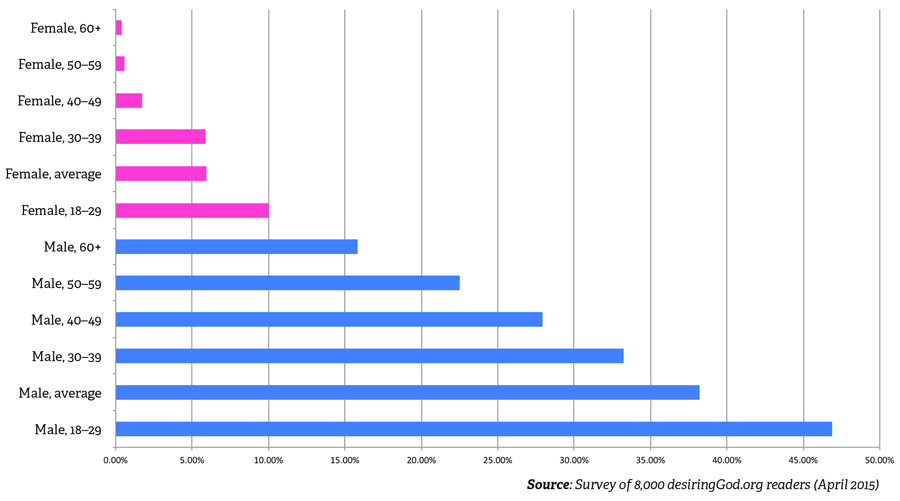I recently watched a BBC Documentary ‘The Dark Ages: An Age of Light’, hosted by Waldemar Januszczak, a television documentary presenter and British art critic, who pitched a startling idea. He claimed that Jesus is simply a deity borrowed from the mythology of the ancient Egyptian god Horus.
We may recoil in horror in response to this claim; however, this isn’t a new idea. There have been a number of skeptics over the years who have similarly claimed that Jesus was nothing more than a copy of popular dying-and-rising fertility gods in various places – Tammuz in Mesopotamia, Adonis in Syria, Attis in Asia Minor, and Horus in Egypt. As Dan Brown claims in The Da Vinci Code, “Nothing in Christianity is original.”
When the comparisons are made though, I must admit that, taken at face value, the similarities are astounding and can cast doubt on the historicity of Jesus (especially young believers who encounter this objection while in University).
A significant portion of the claims made about the similarities with ancient deities though are simply false and lack any archaeological or historical support. Sloppy research in the least and outright lies at the worst are often used in a ‘straw man’ attempt to bolster the effort of some atheists to make these deities (Horus in Waldemar’s case) look as much like Jesus as possible.
But serious research shows just how weak these claims are. Here are only three examples borrowed from J. Warner Wallace’s blog.
Claim: Horus was born in a cave, his birth announced by an angel, heralded by a star and attended by shepherds.
Truth: There is no reference to a cave or manger in the Egyptian birth story of Horus. In fact, none of these details are present in the ancient Egyptian stories of Horus. Horus was born in a swamp. His birth was not heralded by an angel. There was no star.
Claim: Horus was baptized in a river at the age of 30, and his baptizer was later beheaded.
Truth: Horus was never baptized. While conspiracy theorists often point to “Anup the Baptizer” (claiming he was later beheaded), there is no such person in Horus’ story.
Claim: Horus had 12 disciples.
Truth: Horus had only four disciples (called ‘Heru-Shemsu’), but at some point, in his story there is reference to sixteen followers and a group of unnumbered followers who join Horus in battle (called ‘mesnui’).
(You can find many more claims and the corresponding truth by clicking here):
There are many more examples, but even with only using three ‘claims vs. truth’ we can quickly see just how weak the attempts to discredit the authenticity of Jesus’ claim to be God really is.
What does the Bible say?
Still the question remains… Just what was Jesus’ claims about himself? Did he actually claim to be God and does the Bible shed any light on this question? To answer these questions let’s look at what Jesus himself says. In the gospel of John, he says “I and the Father are one.” – John 10:30.
At first glance, this might not seem to be a claim to be God, however, look at the Jews’ reaction to his statement, “We are not stoning you for any of these but for blasphemy, because you, a mere man, claim to be God.” – John 10:33. The Jews understood Jesus’ statement as a clear and loud claim to be God. What’s even more interesting is that later on in the following verses, Jesus never corrects them. He doesn’t put up his hands and say, “whoa, just hold it a minute guys, I didn’t actually claim to be God, you dudes got me all wrong.” The reason? Jesus was actually declaring himself God when he said, “I and the Father are one”. Jesus knew very well what he was saying and he knew how it would be received.
In John 8:58 we’re given another instance: “I tell you the truth before Abraham was born, I am!”
Here again the Jewish leaders get all up in a huff, and again get ready to stone him because of his ‘blasphemy’. Jesus’ announcing his identity as “I am” is a declaration, claiming the Old Testament name for God found in Exodus 3:14 (remember the burning bush story?).
John starts off his Epistle with “In the beginning was the Word and the Word was God.” – John 1:1, and then in John 1:14 “The Word became flesh.” Jesus is identified as the ‘Word’ and so is clearly being acknowledged as God. Following Jesus’ resurrection, Thomas the disciple declared to Jesus, “My Lord and my God” – John 20:28. Jesus doesn’t correct him, rather accepts the worship only God can receive.
We see the apostle Peter describe Jesus as God, “…our God and Saviour Jesus Christ” – 2 Peter 1:1. The apostle Paul does the same thing, “…our great God and Saviour, Jesus Christ” – Titus 2:13.
Also God the Father himself said the following about Jesus, “But about the Son he says, ‘Your throne, O God, will last forever and ever, and righteousness will be the scepter of your kingdom.’” – Hebrews 1:8.
And then we discover that Old Testament prophecies of Christ, announce his deity, “For to us a child is born, to us a son is given, and the government will be on his shoulders. And he will be called Wonderful Counselor, Mighty God, Everlasting Father, Prince of Peace” – Isaiah 9:6
Interestingly enough, the Ancient Greeks, who were immersed in mythological deity worship, never tried to claim that Jesus (or his followers) borrowed ideas from current or former deities or mythologies. The reason they didn’t was simply because they never perceived there to be any similarities. They in fact confirmed that Jesus was unique and not mistaken for any other god when Paul spoke with them.
“Some of the Epicurean and Stoic philosophers also conversed with him. And some said, ‘What does this babbler wish to say?’ Others said, ‘He seems to be a preacher of foreign divinities’ – because he was preaching Jesus and the resurrection. And they took him and brought him to the Areopagus, saying, ‘May we know what this new teaching is that you are presenting? For you bring some strange things to our ears. We wish to know therefore what these things mean’.” – Acts 17:18-20
The point is that if Paul was just rehashing stories of other gods, the Athenians wouldn’t have referred to his doctrine as a “new” and “strange” teaching. If dying-and-rising gods were plentiful in the first century, why then, when Paul preached Jesus rising from the dead, did the Epicureans and Stoics not remark, “Ah, just like Horus and Mithras”?
Why is the question important?
Why is the question over Jesus’ true identity so important? Why does it matter whether or not Jesus is God?
in his book Mere Christianity C.S. Lewis writes the following:
“I am trying here to prevent anyone from saying the really foolish thing that people often say about Him [Jesus Christ]: ‘I’m ready to accept Jesus as a great moral teacher, but I don’t accept his claim to be God.’ That is the one thing we must not say. A man who was merely a man and said the sort of things Jesus said would not be a great moral teacher. He would either be a lunatic – on a level with a man who says he is a poached egg – or else he would be the Devil of hell. You must make your choice. Either this man was, and is, the Son of God, or else a madman or something worse. You can shut him up for fool, you can spit at him and kill him as a demon; or you can fall at his feet and call him Lord and God. But let us not come up with any patronizing nonsense about his being a great human teacher. He has not left that option open to us. He did not intend to.”
In attempts to explain away the words of Jesus, modern “scholars” claim the “true historical Jesus” did not say many of the things the Bible attributes to him and as we have seen people like Waldemar do – even trying to bolster their claims by relegating Jesus to a borrowed ‘God Mythology’.
But who are we to argue with God’s Word concerning what Jesus did or did not say? How can an art critic, “scholar” or documentary presenter, two thousand years removed from Jesus have better insight into what Jesus did or did not say than those who lived with, served with, and were taught by Jesus himself?
C.S. Lewis argued, believing Jesus to be only a good teacher isn’t an option. Jesus clearly and undeniably claimed to be God. If he is not God, then he is a liar, and so not a prophet, good teacher, or godly man. Jesus has to be God because if he is not God, his death would not have been sufficient to pay the penalty for the sins of the whole world. Only God could pay such an infinite penalty, “But God shows his love for us in that while we were still sinners, Christ died for us.” – Romans 5:8
Salvation is available only through faith in Jesus Christ. Jesus’ deity is why he is the only way of salvation. Jesus’ deity is why he proclaimed, “I am the way and the truth and the life. No one comes to the Father except through me” – John 14:6
If Jesus is simply a myth among many myths, and therefore not a prophet, good teacher, godly man, or even real, then we can do whatever we want without having to worry about God judging us. But if he does exist as God then we must recognise that we are responsible to him and in need of forgiveness from him. “For His invisible attributes, namely, His eternal power and divine nature have been clearly perceived, ever since the creation of the world, in the things that have been made. So they are without excuse.” – Romans 1:20
I truly hope and pray that men like Waldemar discover this truth and declare Jesus as Thomas did, My Lord & my God, before they meet him as their Judge.





